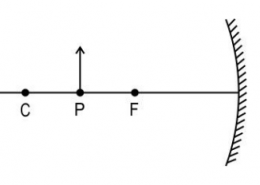The ozone layer, located in the Earth’s stratosphere, shields life from harmful ultraviolet (UV) radiation. Human-made substances, such as chlorofluorocarbons (CFCs), contribute to ozone depletion, threatening environmental and health impacts.
Home/cbse biology sample paper 2024
Discussion Forum Latest Questions
Subham Kumar
Asked: In: Class 10 Science
Thermit process is a metallurgical reaction where a mixture of aluminum powder and a metal oxide, typically iron oxide, undergoes an exothermic reaction, producing molten metal and heat.
Subham Kumar
Asked: In: Class 10 Science
When light passes through a prism, it undergoes refraction, separating into its component colors due to varying speeds in the different wavelengths. This dispersion reveals the spectrum, showcasing distinct hues.

